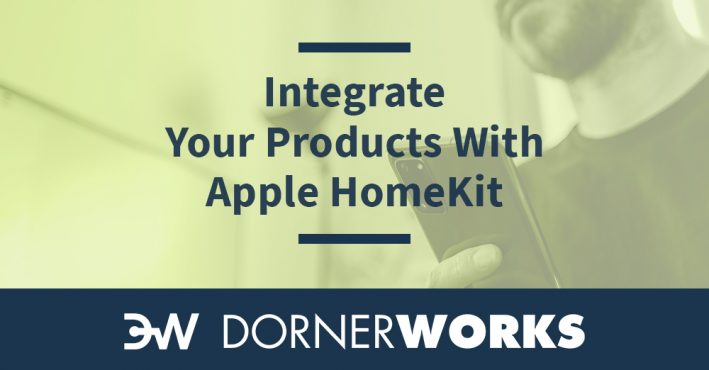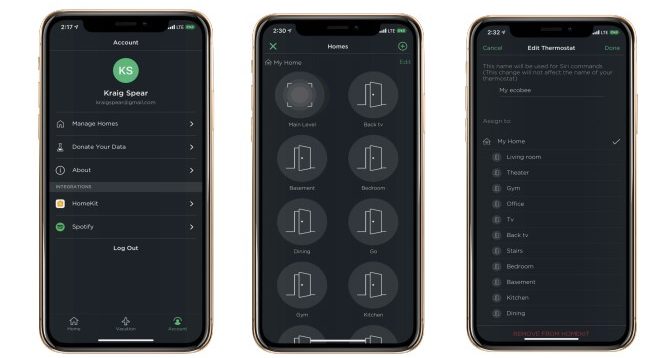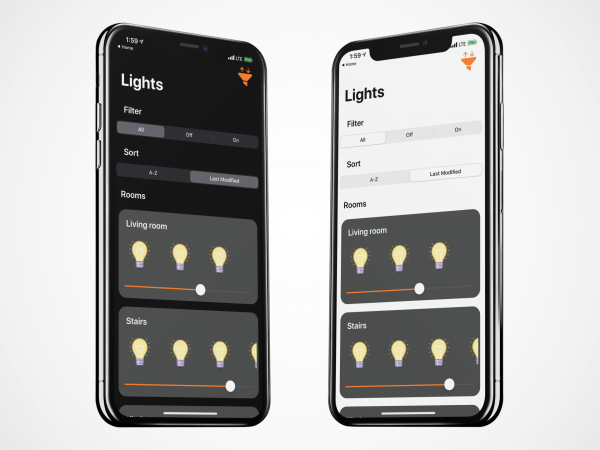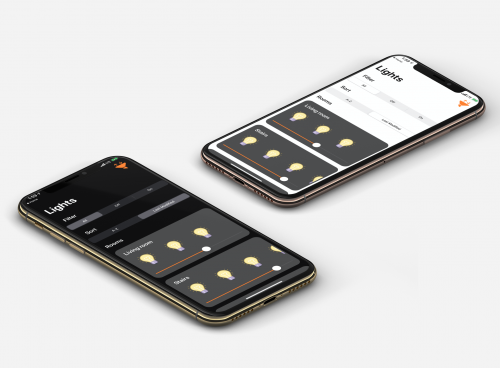
Do your products save your customers time? Get more done? Sleep better at night?
Successful “smart” products make life easier for people, especially when they connect with others through integrative services like Apple’s Home app. This lets you set your garage door to open, lights to turn on, and thermostat to transition to a comfortable setting by tapping your smartphone or giving Siri a spoken command.
Product developers can tap into this functionality using HomeKit, a software framework that allows devices from multiple vendors to work together in configured scenes. Integrating HomeKit into your app is useful for allowing your customers control and coordination through the Home app, it opens up the possibility of integrating with other HomeKit-enabled accessories, and it can help you grow your business by making your customers lives easier.
From a user’s perspective, HomeKit integration looks like a menu item that accesses HomeKit settings. The image here illustrates the UI for the HomeKit-enabled ecobee app, which allows a user to create homes, rooms, and name each thermostat within.

The HomeKit-enabled HomeKitLights app was developed by DornerWorks engineers, aligned to Apple’s MFi certification standards. It improves on the Home app’s UI and navigation. The clean and simple design enables greater control over connected devices, while covering the same functionality of HomeKit, including third-party integrations and scheduling.

HomeKitLights gives users:
This app is a template companies can use to launch their own HomeKit-enabled products, demonstrating an accelerated path to MFi certification. Here’s how we arrived at the design:
There are many types of applications that you can create with HomeKit other than one used to set up a connected accessory. Without an accessory to configure a setup app for, we created one that makes controlling many lights, either individually or in groups, easier.

The Home app UI can be confusing when working with multiple rooms. The more rooms and lights connected to the app, the more scrolling the user needs to do to select the desired device or group. And once you find the room, lights can only be turned on or off one at a time.
We developed functionality into the HomeKitLights app that allows users to organize lights in groups and control them as one unit. Vertical scrolling optimizes the use of screen size and speeds navigation, while smarter sorting and filtering features make the app more intuitive.
DornerWorks engineers employed a number of tools to create HomeKitLights, including Apple’s Swift language, the SwiftUI framework, the Combine reactive framework and HomeKit, of course.
Searching the App Store for HomeKit-tagged solutions will likewise turn up other options. Designing your own HomeKit app can cut down on costs if you have the expertise and the time, but connecting it to the signature functionality of your product may require a deeper dive into firmware and hardware. At that point, it’s important to consider Apple’s primary certification for third-party hardware integrations.
The MFi (Made for iPod) certification standard was developed in 2005, initially as a quality assurance process to ensure that iPod accessories and chargers using the 30-pin interface worked as intended. Today, Apple requires similar compliance and safety tests on any piece of hardware or software marketed as integrating with apple products, most often indicated by the “Made for iPhone” label on the package.
If you want your products to carry Apple’s qualification, they must meet the MFi standards.
In homes with Apple devices, users may expect the new devices that they purchase to work with HomeKit. When there are competitive products, HomeKit integration could be the deciding factor in the purchase decision.
Because buyers are usually aligned with only one platform, the best strategy is to support all of the prominent platforms, including Google Home, Amazon Alexa, and Apple HomeKit. When someone is forced to choose between your products or a competitor’s, you don’t want to lose out because your devices are not integrated with one of these platforms.
DornerWorks can guide you to a solution using embedded hardware and software expertise that meets MFi certification and makes life easier for your customers. Schedule a meeting with us today and we will collaborate on a plan to grow your business with HomeKit-enabled products.